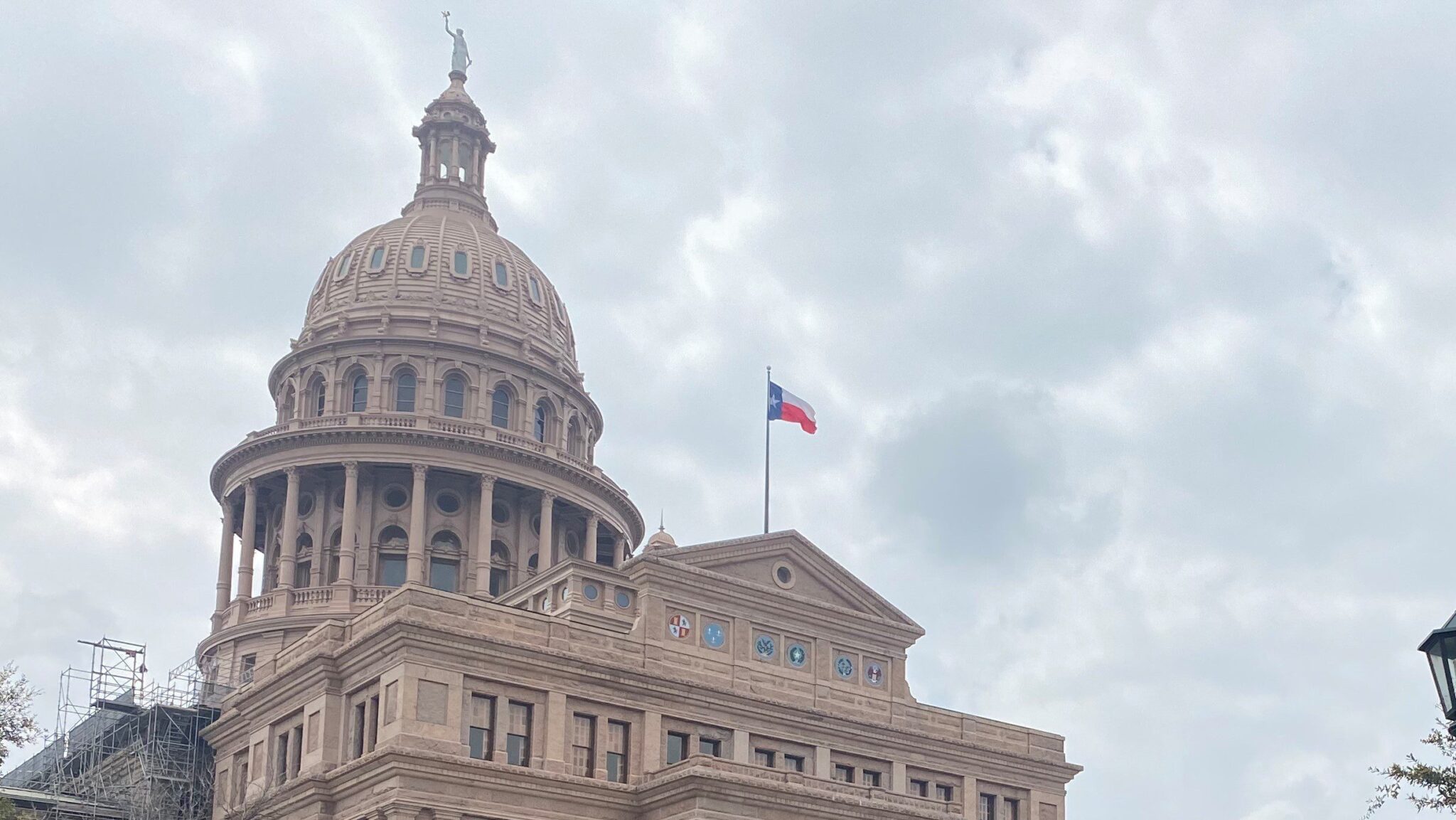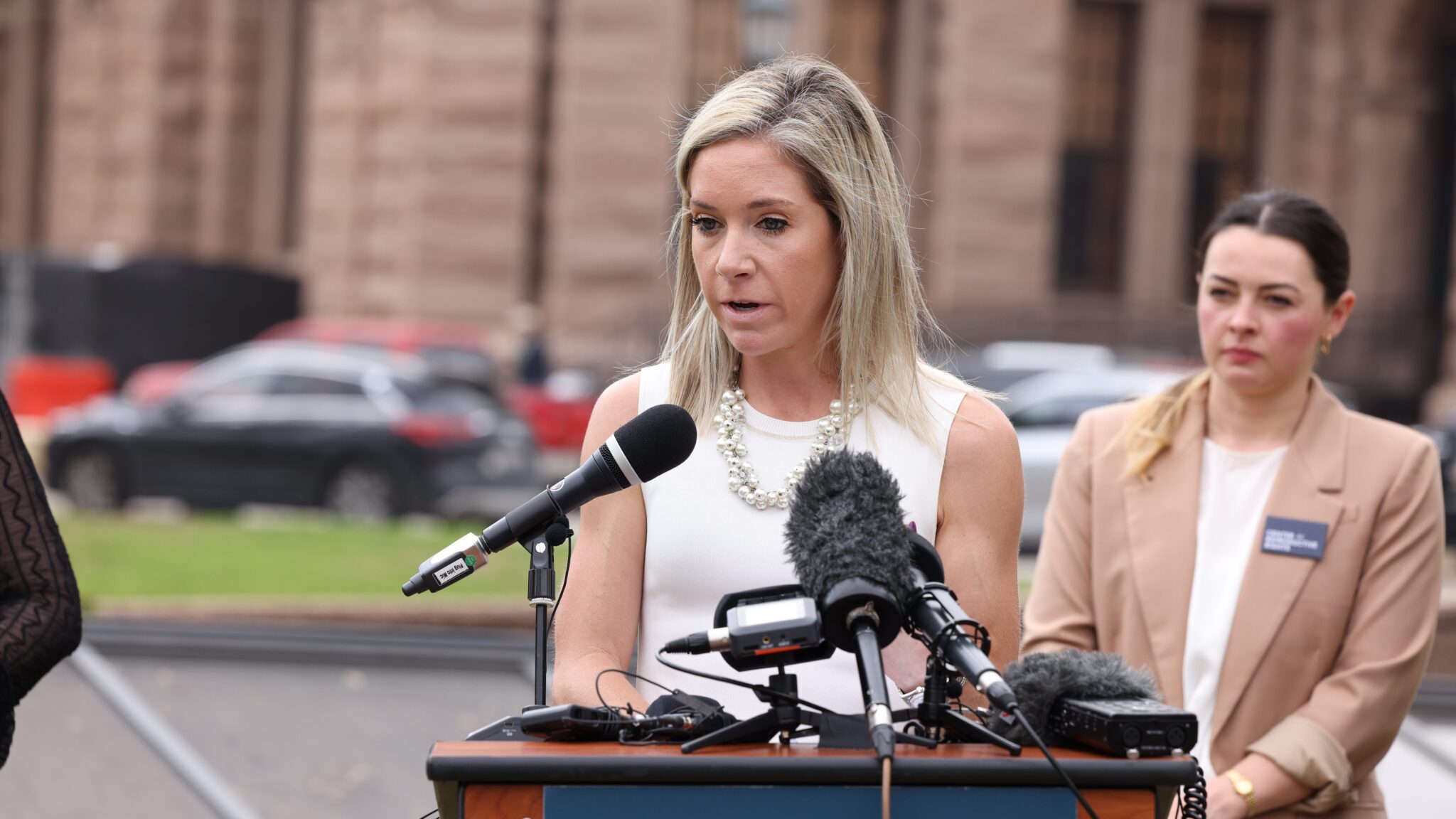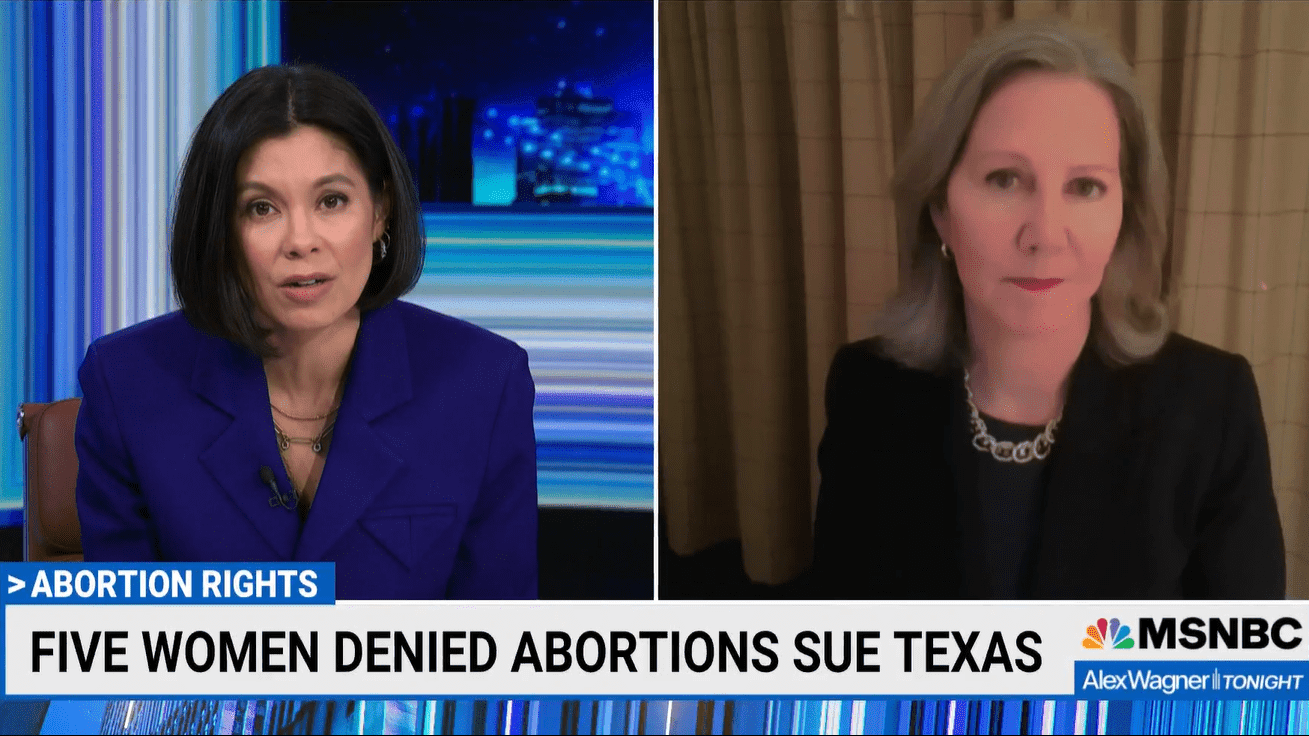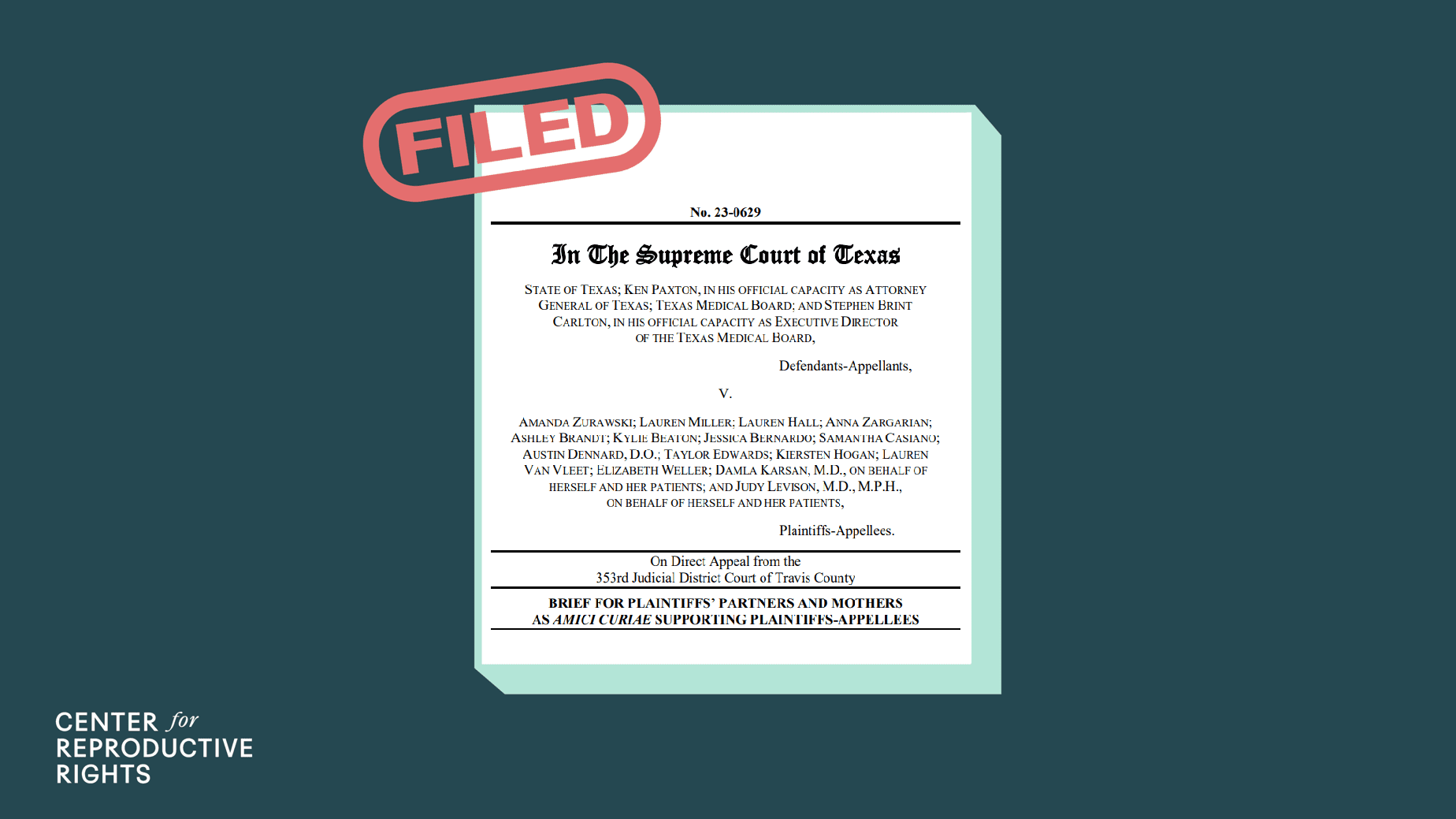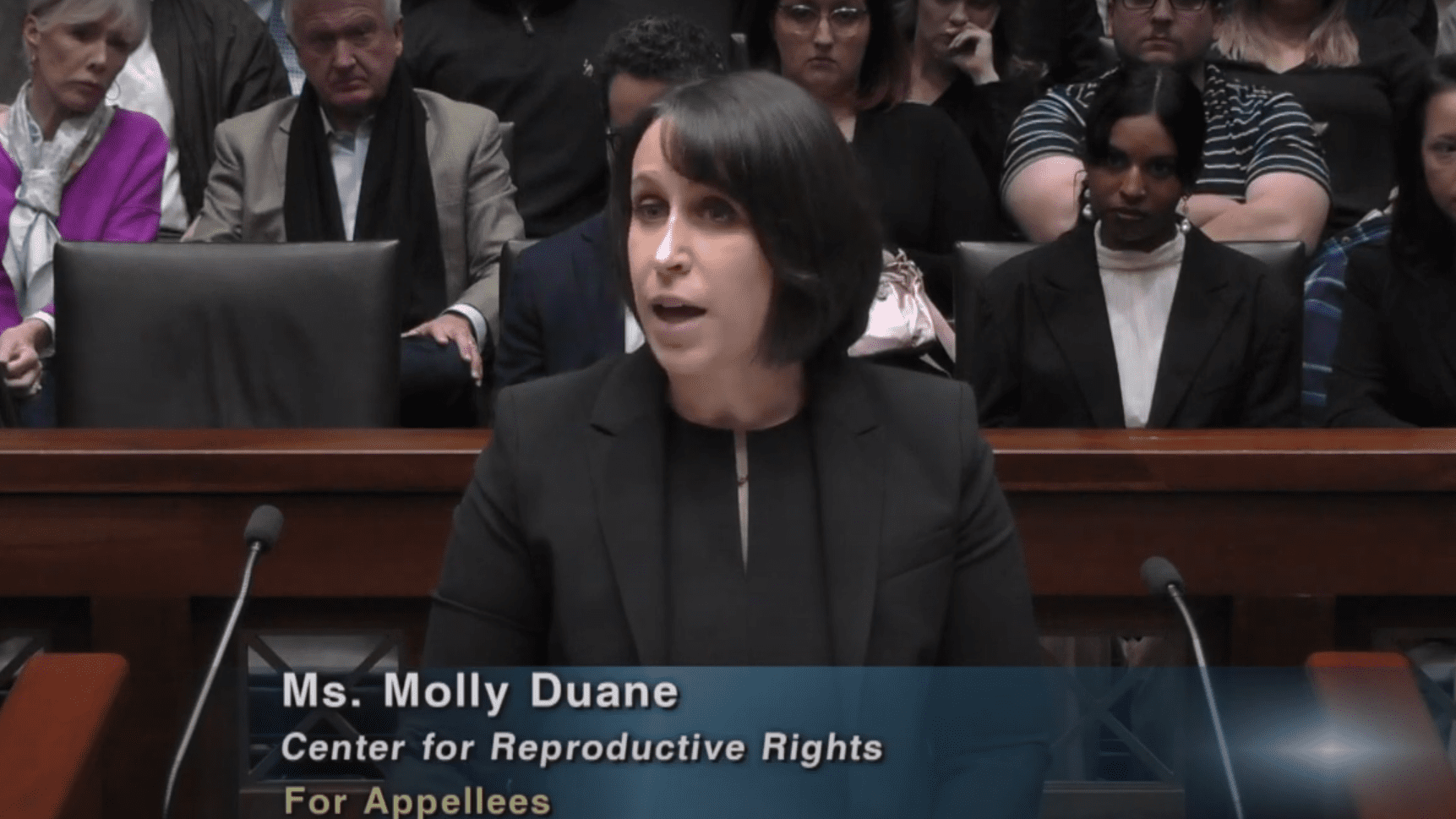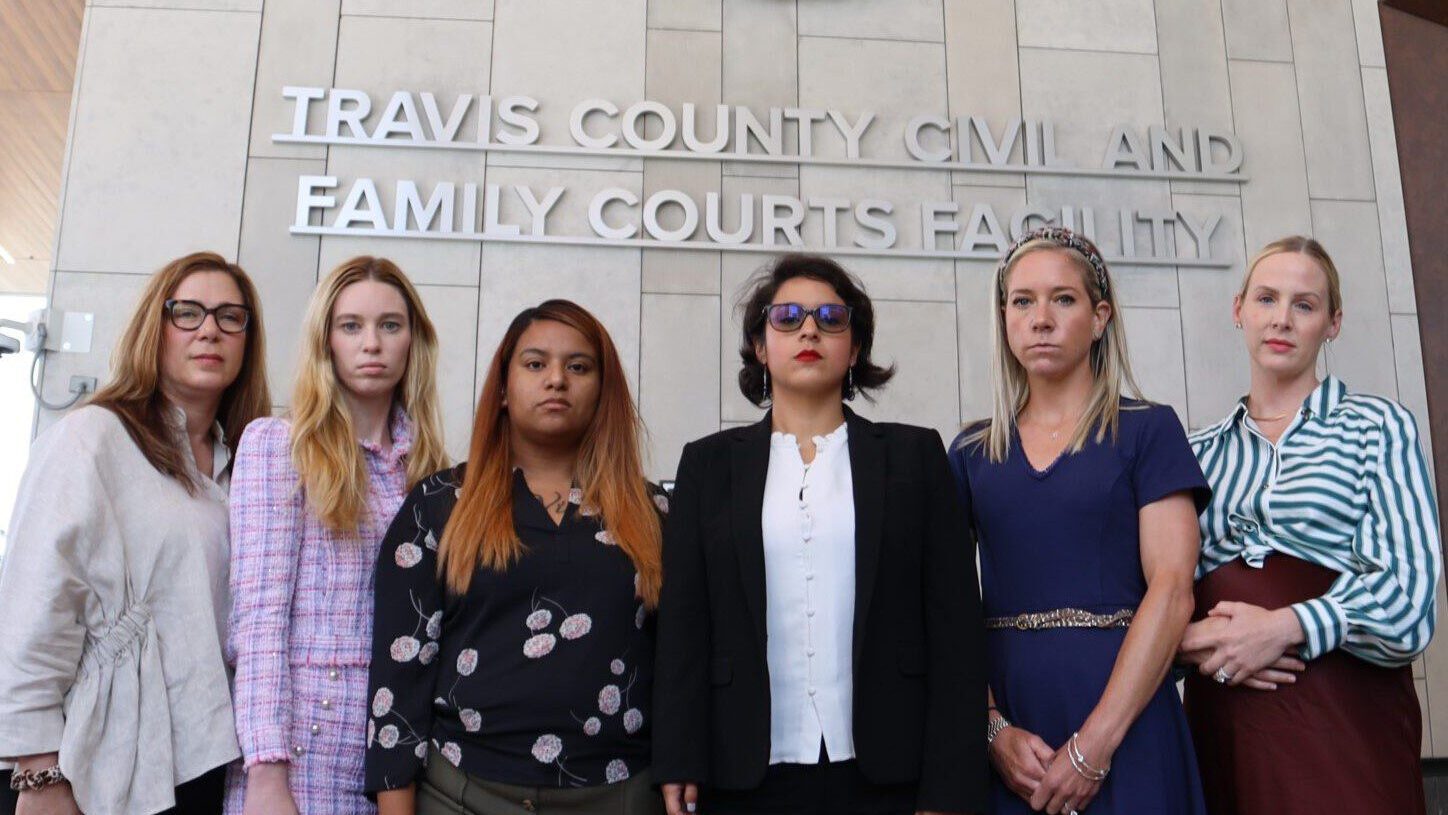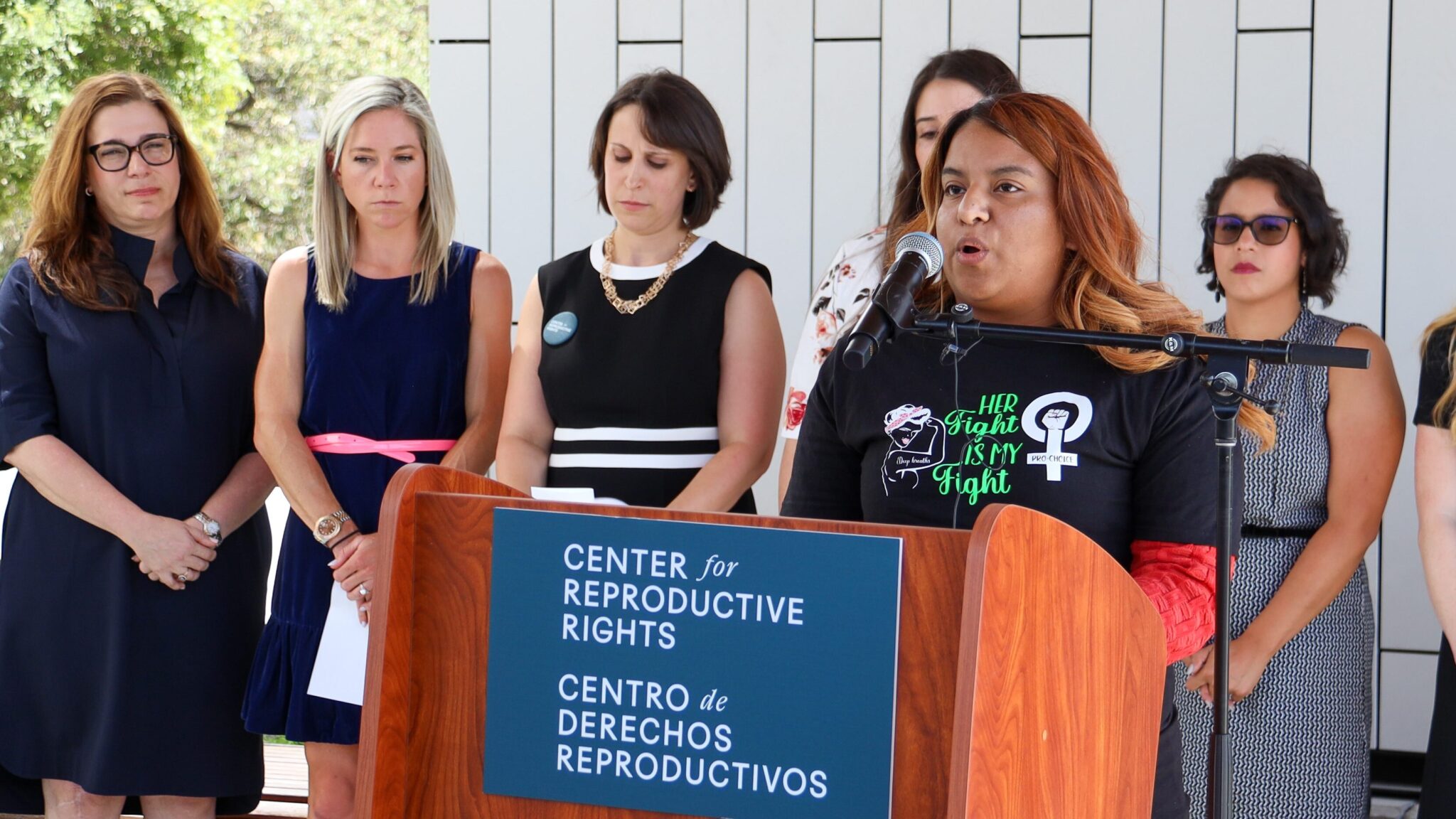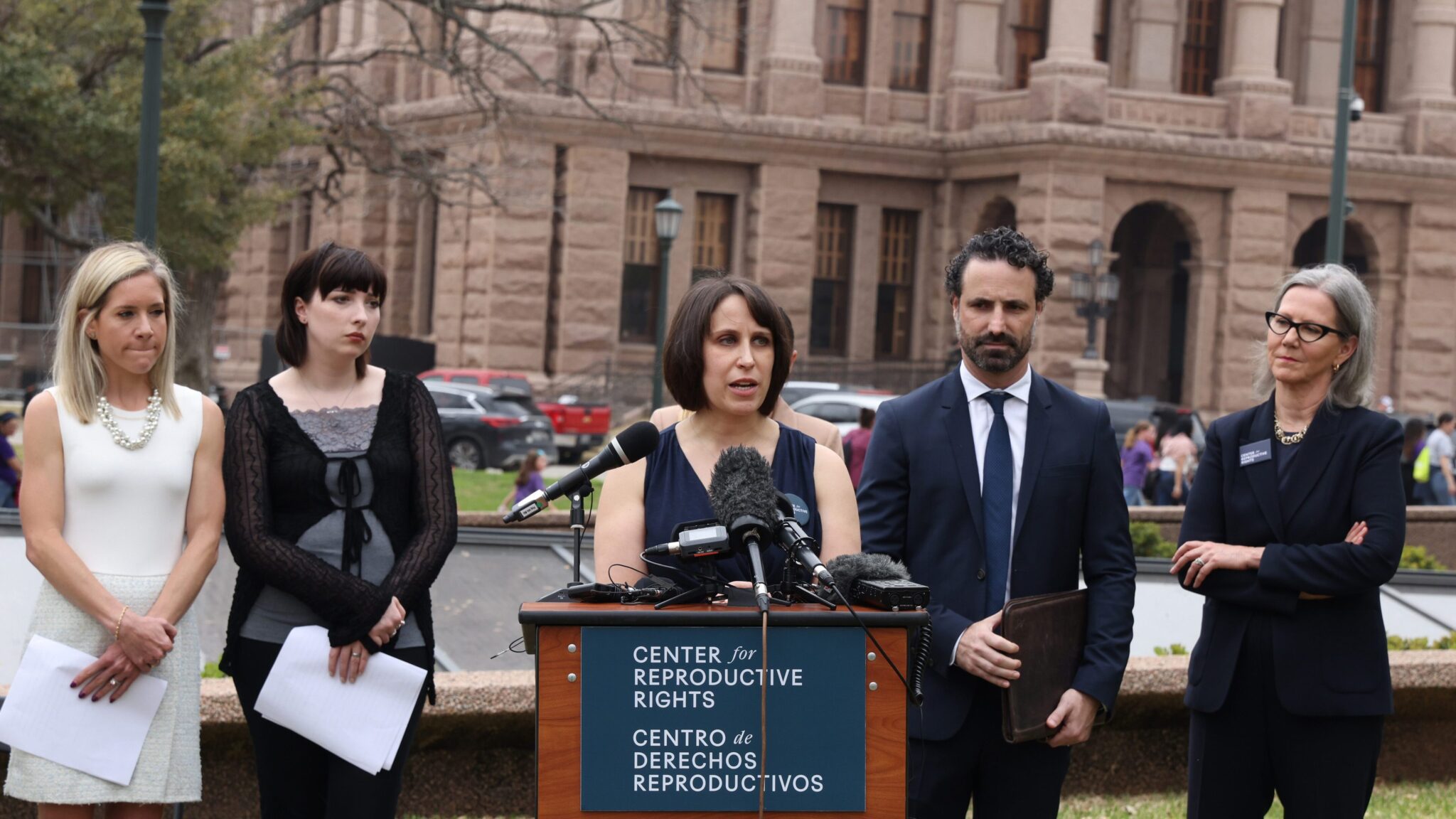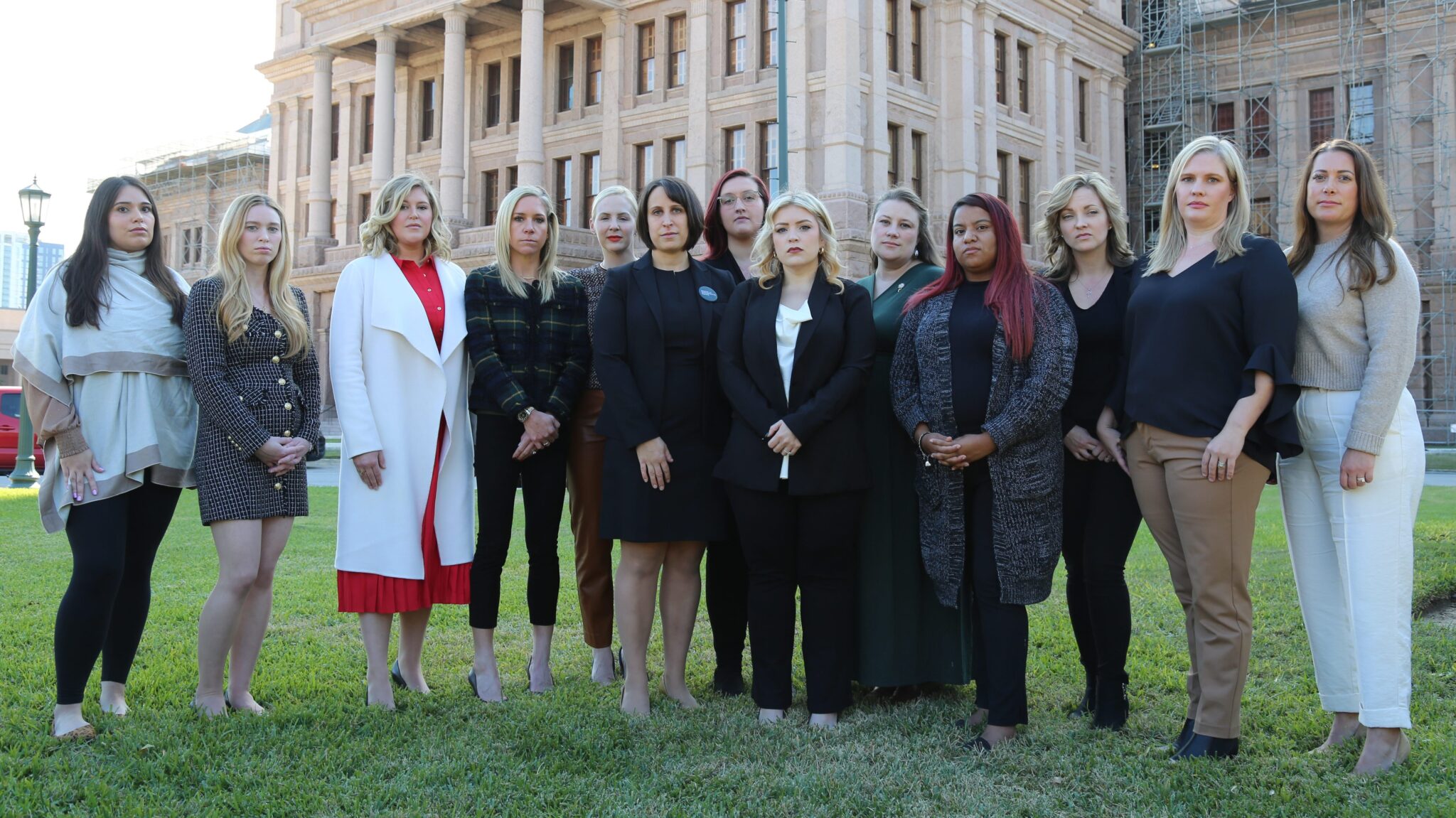Texas Abortion Ban Emergency Exceptions Case
Zurawski v. State of Texas
Seeking clarity to Texas's "emergency medical" exceptions under its extreme abortion bans.
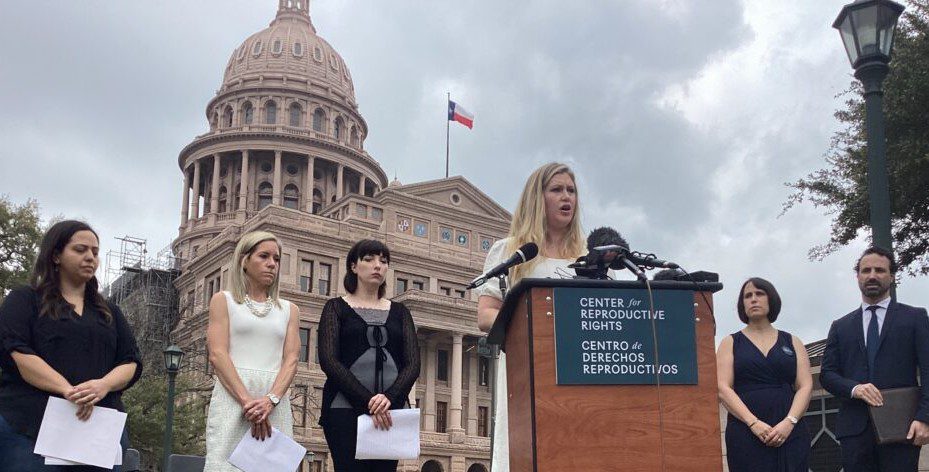
Case update: In a ruling August 4, a Texas district judge issued an injunction blocking Texas’s abortion bans as they apply to dangerous pregnancy complications, clarifying that doctors can use their own medical judgment to determine when to provide abortion care in emergency situations. The state immediately appealed the ruling, blocking it from taking effect.
The Texas Supreme Court heard oral argument on November 28. Watch the video replay here.
The Center for Reproductive Rights filed a groundbreaking lawsuit on March 6, 2023, against the state of Texas, seeking to clarify the scope of the state’s “medical emergency” exception under its extreme abortion bans. The case was brought on behalf of five Texas women—each denied abortion care after facing severe and dangerous pregnancy complications—and two Texas obstetrician-gynecologists.
With a growing number of women denied abortion care in the state, several more have joined this lawsuit against Texas. There are now 22 plaintiffs—including 20 women denied abortion care.
Zurawski v. State of Texas is the first lawsuit brought on behalf of women denied abortions since the U.S. Supreme Court eliminated the constitutional right to abortion and cleared the way for states to ban it entirely.
While Texas’s laws contain an exception for the life and health of the pregnant person, the state’s hostile abortion landscape has made physicians afraid to rely on the exception. These extreme bans criminalizing abortion have stoked fear and confusion among pregnant people and doctors throughout the state.
Physicians found to have violated Texas’s abortion laws face fines of at least $100,000, up to 99 years in prison, and revocation of their state medical licenses. Such legal risks, combined with the bans’ unclear language, are deterring Texas physicians from providing their patients with abortion care—a necessary, life-saving procedure crucial for treating many dangerous pregnancy conditions to their patients. As a result—and as demonstrated by the experiences of the women in this case—patients in Texas have experienced severe physical harm and mental anguish.
For an update on the case, please see the “Case In Depth” page here.
Denied abortion care?
The Center for Reproductive Rights is dedicated to helping all people access abortion in their communities, including people who are denied care while facing pregnancy complications. If you have been denied care and want to speak to a lawyer about your options, please reach out to [email protected].
